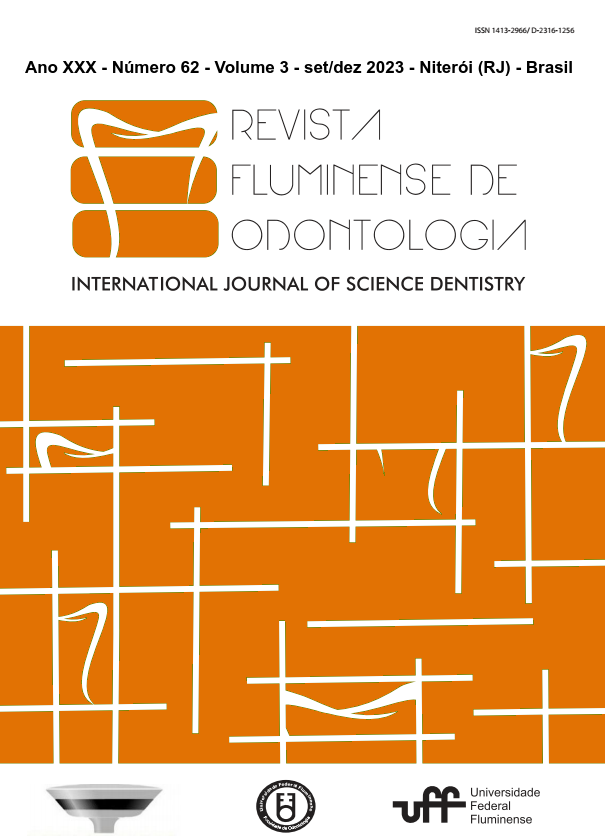Botulinic toxin in the treatment of severe bruxism in a patient with cerebral palsy: case report.
DOI:
https://doi.org/10.22409/ijosd.v3i62.57780Abstract
Cerebral palsy is a result of non-progressive brain injury that occurs in fetal development or early childhood, characterized mainly by changes in muscle tone. In these people, chewing structures, such as muscles and joints, have repercussions thanks to neuromotor disorders. Bruxism is an involuntary activity of muscle contraction, of central origin, characterized by the habit of grinding or clenching teeth, being the parafunctional oral habit that most affects these individuals. This article aims to report the case of a 26-year-old patient with cerebral palsy who sought treatment at the dental clinic of Universidade Federal Fluminense. The patient had severe bruxism and botulinum toxin type A was used for treatment as an efficient and safe alternative. It can be concluded that the intramuscular applications of botulinum toxin was an efficient and safe treatment in the case report presented for the treatment of severe bruxism in a patient with autism.
Keywords: bruxism, botulinum toxins, cerebral palsy.





